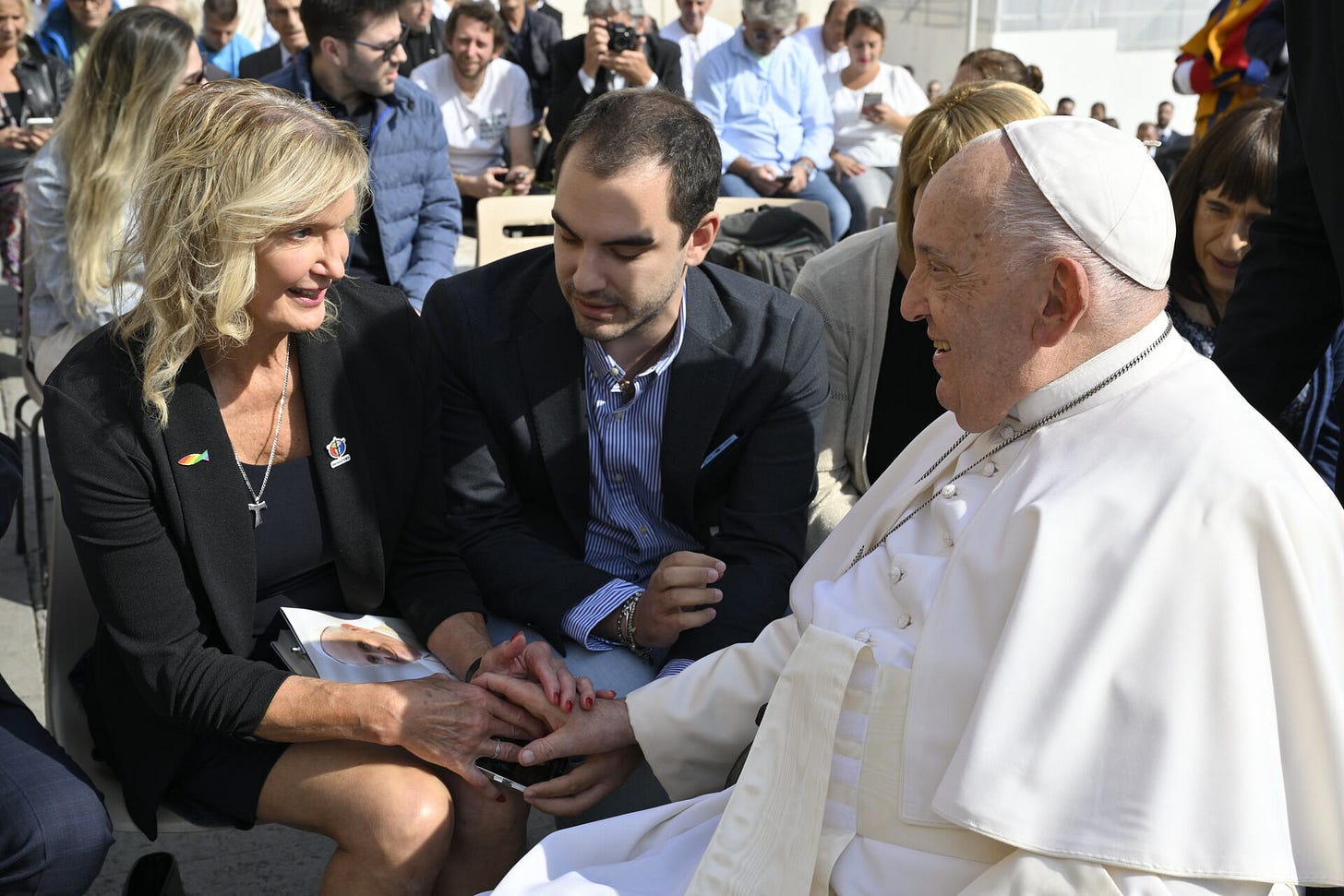I still remember the anxiety and pressure of first telling people about my trans identity. My heart pounding in my ears, my breath catching in my throat, and time slowing to a painful crawl as I waited to see how the other person would respond. Would they have questions? Would they be combative? Would they be able to see me for who I am?
As a transgender man and a lifelong Catholic, I’ve had plenty of difficult moments of visibility (and some truly affirming experiences as well) just like many other transgender people across the country. We live out a complex reality that ties anxiety and visibility to hope and acceptance. Yet we go through so much just to be able to recognize our own identity that facing an antagonistic society sometimes proves to be too much: when politicians and others fan transphobic fires, real harm comes to transgender people in our communities.
Too often, church becomes another place of conflict and questioning for trans people, where “you” may be welcome—but not your full identity. While official Catholic teaching makes it clear that discrimination and prejudice against LGBTQ people is sinful, many Catholic leaders and speakers see no problem with preaching against the LGBTQ community explicitly (despite the fact that we are not a monolith of belief or behaviors). Generally, the same level of scrutiny and scrupulosity is not applied equally to the cisgender and heterosexual members of the congregation.
Recently Pope Francis received four American Transwomen for a brief blessing after a general audience on September 18, 2024. Christine Zuba was among those women, and part of what she included in her short note to the Pope before meeting him was a beautiful summary of trans people as members of the broader human (and Catholic) community: as sisters, brothers, friends, and coworkers. She also noted, “We are not part of any ideology. (…) We are Catholics who cherish our faith and love our church.” Transgender Catholics are just people. People who want to live freely and follow the same call to love God and neighbor as every other Catholic.
Standing before the Pope and telling him, “I’m transgender,” no doubt takes courage, but for a trans woman like Christine who frequently shares her story and advocates for the rights and inclusion of transgender people, it’s a matter of vocation: for her, visibility sends a message.
I agree with Christine. Though our church moves much more slowly on these vital matters of inclusion than I would like, there are moments of consolation—and grace. The Pope’s willingness to publicly meet with transgender people (along with his ongoing pastoral ministry for transgender women in Rome, including sex workers) is deeply meaningful, especially when many transgender people have had the experience of being thrown out of church.
So, what’s next? There are some easy things and some more complicated things Pope Francis could do to benefit the trans community. One of the easy things is to continue what he’s doing on a deeper level. Don’t stop with four American transwomen—meet with even more members of the trans community, and meet with them for longer in order to truly hear the concerns and needs of transgender Catholics. Non-binary people especially deserve more face time with the Pope, especially in light of his comments indicating that he believes in something called “gender ideology” which many claim “hopes to destroy the family.”
We are members of families. Christine said it well. The Pope is drawing upon an extremely out of date text to define his understanding of ideology, and although he seems to understand that transgender people are not ideologies in themselves, his language is clunky and dated as well. The Synod is meeting again and models a good example of the listening posture that Catholics should model towards marginalized people such as the LGBTQ community. Being seen is impactful, but must also lead to concrete inclusion and support.
The more complicated answer for the church is to take a hard look at the way theology is so often co-opted to tell only one story: a dominant narrative biased towards cis-heteronormativity. Catholics have too often turned a blind eye to our rich history and tradition of spiritual mysticism, choosing instead to become mired in dogma-driven navel-gazing. Why would a God who clearly creates, loves, and blesses diversity ever try to tell only one story about humanity? Catholic means universal. The church is not a homogenous human institution and should not conduct itself as such: the revealed word of God in the lives of on-fire LGBTQ Catholics is a prophetic message for the world we live in today.
The greater body of Christ has a grave obligation to meet the challenges of a world marred by hatred and violence with a love that compels heroic, sacrificial action—exactly the way Jesus lifted his cross and carried it. When we act in this way, as imitators of Christ, the holy spirit breathes through the entire community, strengthening the whole. That’s how harm reduction and mutual aid work. That’s why the beatitudes represent a beautiful core of Christ’s message. And that’s why welcoming transgender Catholics into the church is a divine responsibility that we all share.





"The more complicated answer for the church is to take a hard look at the way theology is so often co-opted to tell only one story: a dominant narrative biased towards cis-heteronormativity" - PREACH! Our church can do better - it NEEDS to do better.